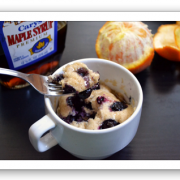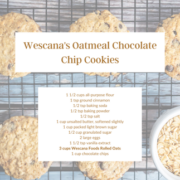Canadian Celiac Association Supports Purity Protocol for Celiac-Safe Oats
 Canadian Celiac Association, Professional Advisory Council Position Statement on Consumption of Oats by Individuals with Celiac Disease, “The safety of oats in individuals with celiac disease has been extensively investigated. Health Canada has reviewed the clinical evidence from numerous international studies and has concluded that the consumption of oats, uncontaminated with gluten from wheat, rye or barley, is safe for the vast majority of patients with celiac disease.”
Canadian Celiac Association, Professional Advisory Council Position Statement on Consumption of Oats by Individuals with Celiac Disease, “The safety of oats in individuals with celiac disease has been extensively investigated. Health Canada has reviewed the clinical evidence from numerous international studies and has concluded that the consumption of oats, uncontaminated with gluten from wheat, rye or barley, is safe for the vast majority of patients with celiac disease.”
“Most commercially available oats in North America are contaminated with gluten-containing grains (wheat, rye, barley). This has been confirmed in various studies including one by Health Canada scientists.”
 “88% of commercial oats in Canada are contaminated with gluten-containing grains. with cross-contamination in the field, in the transport of the grain, in the storage of the grain, and in the milling and packaging facilities,” from National Institute of Health
“88% of commercial oats in Canada are contaminated with gluten-containing grains. with cross-contamination in the field, in the transport of the grain, in the storage of the grain, and in the milling and packaging facilities,” from National Institute of Health
The Canadian Celiac Association indicates that, “Health Canada does not specify the methods or controls oat producers should use in order to meet the Marketing Authorization requirements. Many producers of gluten-free oats use the purity protocol which has been proven to be effective.”
Cream Hill Estates Purity Guarantee:
“We guarantee that our oats are pure and free of cross-contamination with wheat, barley, rye, triticale, kamut, spelt and other grains that are closely related to wheat. We protect and check our oats at all critical stages: • as seed • at planting • while growing in the field • at harvesting • during transport • in storage • during processing • packaging. We certify purity through seed lab and R5-ELISA gluten test results.”

Cream Hill Estates Three-Stage Purity Verification Process
• the fields – no wheat-related crop for at least the 3 previous years
• the seed – meets or exceeds standards for purity
• the equipment – dedicated and/or cleaned before use for oat processing
1. Our crop is inspected.
The Canadian Food Inspection Agency (CFIA) does a one time inspection of our crop in the field and reports on crop purity and on the presence/absence of any contaminating crops. The seed grower constantly inspects the crop and removes foreign plants as well.
2. Seed from the harvested crop is analyzed for purity in two steps.
Step one:
After harvesting, samples are sent to a federally-certified seed lab where a trained technician examines every single seed in over 15 kilograms of sample – that’s over 600,000 seeds! All foreign seeds, whether they be crop or weed seeds, are removed from the oats and identified as to the specific type of seed – wheat, barley, rye, canola, corn, weed etc. The technician reports to us on the type and number of foreign seeds per kilogram. If there is more than one wheat, barley, rye, triticale, kamut, spelt or other cereal seed closely related to wheat per kilogram, we do not use those oats.
Step two:
After cleaning by the seed grower, and before delivery to the processing mill, samples from each 1-tonne bag of our seed are again sent to the certified seed lab where the technician goes through the same process described in step one. If any sample from a 1-tonne bag contains any wheat, barley, rye, triticale, kamut, spelt or other cereal seed closely related to wheat, that bag is not sent to the processing mill.
3. Our miller uses dedicated and/or thoroughly cleaned equipment.
The equipment that processes the oats into flakes and flour is used only for oats and/or it is thoroughly cleaned and inspected to ensure there are no contaminating seeds present before it is used for pure oats.
After processing, the oats are sampled at the mill, and the samples are sent to a certified biochemical testing lab in Burlington, Vermont, USA. There, the highly sensitive and internationally recognized R5 ELISA test: R-7001 shows whether, and if so, how much, gluten is in the finished products. This test is 10 times more sensitive than commonly used gluten detection tests. Our oats consistently test below or near the test’s lower limit of quantitation, which is five (5) parts per million.














